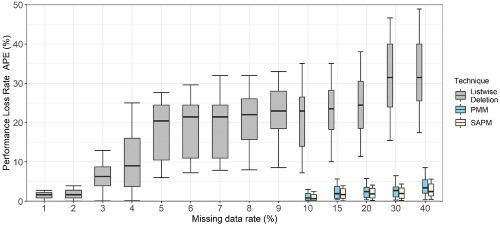当前位置:
X-MOL 学术
›
Prog. Photovoltaics
›
论文详情
Our official English website, www.x-mol.net, welcomes your
feedback! (Note: you will need to create a separate account there.)
Data processing and quality verification for improved photovoltaic performance and reliability analytics
Progress in Photovoltaics ( IF 8.0 ) Pub Date : 2020-10-07 , DOI: 10.1002/pip.3349 Andreas Livera 1 , Marios Theristis 2 , Elena Koumpli 3 , Spyros Theocharides 1 , George Makrides 1 , Juergen Sutterlueti 4 , Joshua S. Stein 2 , George E. Georghiou 1
Progress in Photovoltaics ( IF 8.0 ) Pub Date : 2020-10-07 , DOI: 10.1002/pip.3349 Andreas Livera 1 , Marios Theristis 2 , Elena Koumpli 3 , Spyros Theocharides 1 , George Makrides 1 , Juergen Sutterlueti 4 , Joshua S. Stein 2 , George E. Georghiou 1
Affiliation

|
Data integrity is crucial for the performance and reliability analysis of photovoltaic (PV) systems, since actual in‐field measurements commonly exhibit invalid data caused by outages and component failures. The scope of this paper is to present a complete methodology for PV data processing and quality verification in order to ensure improved PV performance and reliability analyses. Data quality routines (DQRs) were developed to ensure data fidelity by detecting and reconstructing invalid data through a sequence of filtering stages and inference techniques. The obtained results verified that PV performance and reliability analyses are sensitive to the fidelity of data and, therefore, time series reconstruction should be handled appropriately. To mitigate the bias effects of 10% or less invalid data, the listwise deletion technique provided accurate results for performance analytics (exhibited a maximum absolute percentage error of 0.92%). When missing data rates exceed 10%, data inference techniques yield more accurate results. The evaluation of missing power measurements demonstrated that time series reconstruction by applying the Sandia PV Array Performance Model yielded the lowest error among the investigated data inference techniques for PV performance analysis, with an absolute percentage error less than 0.71%, even at 40% missing data rate levels. The verification of the routines was performed on historical datasets from two different locations (desert and steppe climates). The proposed methodology provides a set of standardized analytical procedures to ensure the validity of performance and reliability evaluations that are performed over the lifetime of PV systems.
中文翻译:

数据处理和质量验证,可改善光伏性能和可靠性分析
数据完整性对于光伏(PV)系统的性能和可靠性分析至关重要,因为实际的现场测量通常会显示由故障和组件故障引起的无效数据。本文的范围是为PV数据处理和质量验证提供完整的方法,以确保改进的PV性能和可靠性分析。开发了数据质量例程(DQR),以通过一系列过滤阶段和推理技术检测和重建无效数据,从而确保数据保真度。获得的结果证明,PV性能和可靠性分析对数据的保真度敏感,因此应适当处理时间序列重建。为了减轻10%或更少无效数据的偏见影响,逐项删除技术为性能分析提供了准确的结果(最大绝对百分比误差为0.92%)。当丢失数据率超过10%时,数据推断技术将产生更准确的结果。缺失功率测量的评估表明,通过应用Sandia光伏阵列性能模型进行时间序列重构,可在光伏性能分析的调查数据推断技术中产生最低的误差,即使缺失40%的数据,其绝对百分比误差也小于0.71%。费率水平。例行程序的验证是在两个不同位置(沙漠和草原气候)的历史数据集上进行的。
更新日期:2020-10-07
中文翻译:

数据处理和质量验证,可改善光伏性能和可靠性分析
数据完整性对于光伏(PV)系统的性能和可靠性分析至关重要,因为实际的现场测量通常会显示由故障和组件故障引起的无效数据。本文的范围是为PV数据处理和质量验证提供完整的方法,以确保改进的PV性能和可靠性分析。开发了数据质量例程(DQR),以通过一系列过滤阶段和推理技术检测和重建无效数据,从而确保数据保真度。获得的结果证明,PV性能和可靠性分析对数据的保真度敏感,因此应适当处理时间序列重建。为了减轻10%或更少无效数据的偏见影响,逐项删除技术为性能分析提供了准确的结果(最大绝对百分比误差为0.92%)。当丢失数据率超过10%时,数据推断技术将产生更准确的结果。缺失功率测量的评估表明,通过应用Sandia光伏阵列性能模型进行时间序列重构,可在光伏性能分析的调查数据推断技术中产生最低的误差,即使缺失40%的数据,其绝对百分比误差也小于0.71%。费率水平。例行程序的验证是在两个不同位置(沙漠和草原气候)的历史数据集上进行的。











































 京公网安备 11010802027423号
京公网安备 11010802027423号